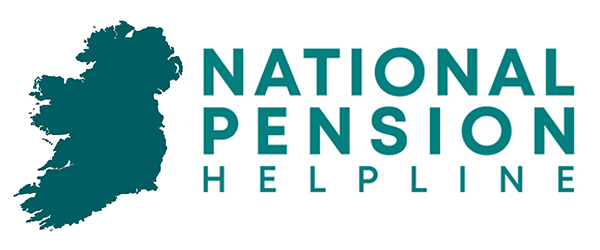How is inheritance tax calculated in Ireland?
If you receive an inheritance following a death, you may have an inheritance tax liability. If you receive a gift, you may have to pay gift tax on it. Both these taxes are types of Capital Acquisitions Tax (CAT).
The benefit, (the gift or inheritance) is taxed if its value is over a certain limit or threshold. Different tax-free thresholds apply depending on the relationship between the disponer (the person giving the benefit) and the beneficiary (the person receiving the benefit). There are also several exemptions and reliefs that depend on the type of the gift or inheritance
If you receive a gift or inheritance from your spouse or civil partner, you are exempt from Capital Acquisitions Tax.
Gifts become inheritances if the disponer dies within two years of giving the gift.
The tax applies to all property located in Ireland. It also applies where the property is not located in Ireland but either the person giving the benefit or the person receiving it are resident or ordinarily resident in Ireland for tax purposes.
How much is inheritance tax in Ireland?
You may receive gifts and inheritances up to a set value over your lifetime before having to pay CAT. It is charged at the current rate of 33 per cent (as per 6 December 2012).
Depending on your relationship to the person whom you receive the inheritance from, you may be entitled to specific tax breaks. Gift tax and inheritance tax are both applied in the same way.
Though as inheritance tax brings unexpected financial responsibility, this calculator takes the number of beneficiaries into consideration while our gift tax calculator does not.
How do I calculate my inheritance tax?
The calculations will be made automatically when you use the online Revenue service to submit your tax return.
The amount of CAT you pay on a gift or an inheritance depends on:
- its value
- your relationship to the person who gave it to you
- whether you have received other gifts or inheritances within the same group threshold.
You do not have to pay tax on a gift or an inheritance if:
- its value is below the relevant group threshold
OR
- aggregation rules do not apply
You pay tax only on the value of a gift or an inheritance above the tax-free group threshold amount. You may be able to reduce this taxable amount through relevant reliefs, exemptions and credits.
What inheritance group am I part of?
There are three different categories or groups.
Group A
- If you are passing on your inheritance to your children, they must pay 33 per cent CAT on anything exceeding €400,000
Group A applies where the beneficiary, is a child of the person giving it. This includes a stepchild or an adopted child. It can also include a foster child if the foster child resided with and was under the care of the disponer and they provided the care, at their expense, for a period or periods totalling at least five years before the foster child reached the age of 18.
This minimum period does not apply if it is an inheritance taken on the date of death of the disponer. In this case the Group A threshold will apply provided that the foster child had been placed in the care of the disponer before that date.
Group A also applies to parents who take an inheritance from their child but only where the parent takes full and complete ownership of the inheritance. If a parent receives an inheritance where they do not have full and complete ownership of the benefit, or if a parent receives a gift, then Group B applies.
If a parent inherits from their child, and they have full and complete ownership of the inheritance it is exempt from tax if, in the previous five years, the child took an inheritance or gift from either parent and it was not exempt from Capital Acquisitions Tax. In this case, no tax needs to be paid even if the inheritance from the child is over the threshold.
Group B
- If you are passing your inheritance to your siblings or grandchildren, they must pay 33 per cent on anything exceeding €40,000
Group B applies where the beneficiary is the:
- Parent – see also Group A above
- Grandparent
- Grandchild or great-grandchild – see below
- Brother or sister
- Nephew or niece of the giver – see below
If a grandchild is a minor (under 18) and takes a gift or inheritance from their grandparent Group A may apply if the grandchild’s parent is deceased.
Group A may apply to a nephew or niece if they have worked in the business of the person giving the benefit for the previous five years and meet the following criteria:
- The nephew or niece must be a blood relation rather than a nephew or niece-in-law
- The gift or inheritance consists of property used in connection with the business, including farming, or of shares in the company
- If the gift or inheritance consists of property then the nephew or niece must work more than 24 hours a week for the disponer at a place where the business is carried on, or for the company if the gift or inheritance is shares. But if the business is carried on exclusively by the disponer, their spouse and the nephew or niece then the requirement is that the nephew or niece work more than 15 hours a week.
- The relief does not apply if the benefit is taken under a discretionary trust
Group C
- If you are not in group A or B you must pay 33 per cent in tax on anything exceeding €20,000
Group C applies to any relationship not included in Group A or Group B.
If you receive a benefit from a relation of your deceased spouse or civil partner, you can be assessed with the same group as your spouse or civil partner would have been if they were receiving the benefit from their relation.
What do you have to pay Inheritance Tax on?
- cash
- house or lands
- household contents
- paintings
- jewellery
- cars
- stocks and shares
- the free use of property
- an interest free loan
- a life interest or a right of residence in a principal private residence property
- a benefit received out of a discretionary trust
- a further share in jointly held property that you inherited from another joint owner
What do you not have to pay Inheritance Tax on?
- it is given to you by your spouse or civil partner
- the total is below the relevant group threshold amount (when its value is added to previous gifts and inheritances in the same group)
You do not pay CAT on a gift with a value of €3,000 or less from any one person in any one calendar year.
Why do I need to have a valuation?
The valuation date is the date on which the market value of the property comprising the inheritance is established.
In the case of an inheritance, the valuation date is normally the earliest of the following dates:
- The date the inheritance can be set aside for or given to the beneficiary
- The date it is retained for the benefit of the beneficiary
- The date it is transferred or paid over to the beneficiary
The valuation date will normally be the date of death in the following circumstances:
- Gift made in contemplation of death (Donatio Mortis Causa)
- Where a power of revocation has not been exercised. This could arise where a person makes a gift of property but reserves the power to revoke, or take back, the gift. If they die and this power ceases, the recipient then becomes taxable as inheriting the benefit. If the beneficiary had free use of the benefit before this, they will be taxed as receiving a gift of the value of the use of the property.
Gifts or inheritances with a valuation date before 14 June 2010
You must complete the tax return and pay the tax within four months of the valuation date. You do this by completing Form IT 38 which you can find on revenue.ie If the tax is not paid within four months, interest is charged.
Are deductions available for the value of the inheritance?
The value that is taxable is the market value minus certain deductions.
You can deduct any liabilities, costs and expenses that are properly payable. This would include debts that must, by law, be paid and that are payable out of the benefit or because of it. With an inheritance, these may be funeral expenses, the costs of administering the estate, or debts owed by the deceased. For a gift, they could include legal costs or stamp duty.
If you make a payment for the benefit or some other contribution in return for it, this may also be deducted. This is known as a “consideration.”
If you do not receive full ownership but instead receive a benefit for a limited period, then several factors are considered to calculate the value.
Are there any tax reliefs available?
Business tax relief
Gifts and inheritances of relevant business property qualify for relief that reduces the taxable value of the property by 90 per cent for the purposes of CAT.
Agricultural tax relief
Tax relief applies to gifts and inheritances of agricultural property and reduces the market value of the property by 90 per cent for the purposes of CAT.
Heritage Property tax relief
Houses and gardens or objects that are of national, scientific, historic or artistic interest are exempt from CAT they meet certain conditions.
Are there any conditions for these reliefs?
Reasonable facilities for viewing must be available to members of the public or, in the case of objects, to recognised bodies or associations. The property must not be used for trading purposes.
Houses and gardens must have had reasonable facilities available for their viewing by the public for three years before a gift or inheritance.
The property must not be sold within six years unless the sale is to a national institution by private treaty. The relief can be clawed back if the conditions are not kept.
For more information contact one of our expert advisers here
Try our other calculators
Now that you have calculated how much you can receive and give in inheritance, it is time to plan for retirement. Our Irish Pension Calculator will show how much you can expect to receive in retirement income through your private pension.
To learn more about your pension and how to best plan for retirement, get in touch with the National Pension Helpline to speak with one of Irelands leading pension experts.


